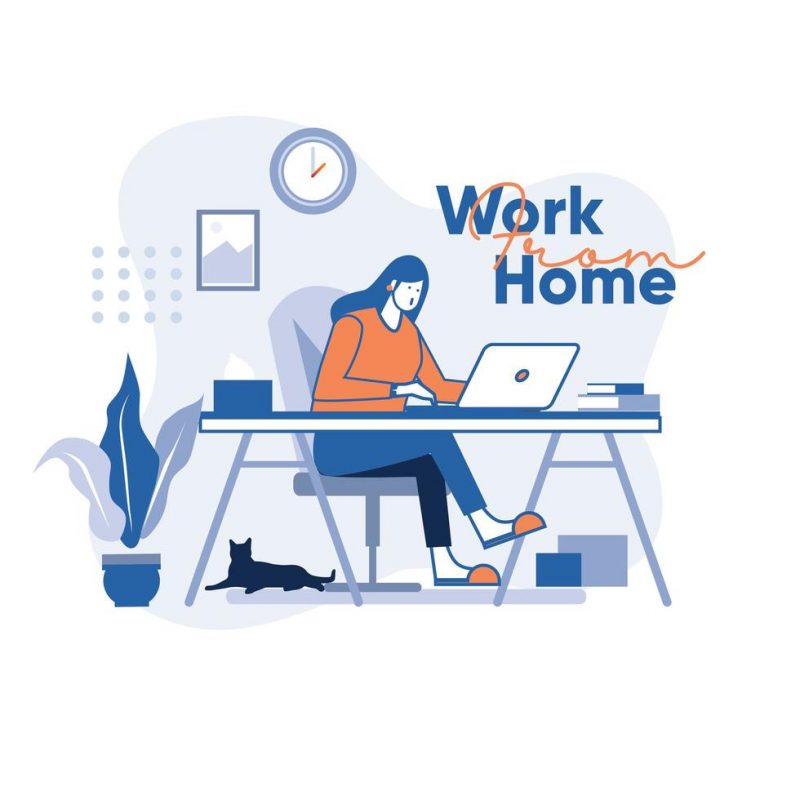The imposed isolation, lockdowns, and quarantines resulting from the COVID-19 pandemic had pushed millions of workers to work from home. While many people are returning to their workplace as vaccines become more available and economies reopen, surveys indicate that more employees than ever before will be working, at least partially, from home. Thanks to the shift, the benefits and limitations of remote working are now clearer. Here’s some information on this topic.
Working from Home Presents Unique Challenges
The Negative Side
A study conducted by Twingate revealed that remote work is leading to workers losing work/life balance. This study found that:
- 45% of workers reported that they are attending more meetings while working virtually than they did while working at the office – only 21% reported attending fewer meetings. Productivity can be hindered due to excessive meetings.
- 40% of remote workers have felt mentally exhausted due to video calls.
A survey by Doodle revealed burnout symptoms among remote workers. Key findings include:
- After a week of attending virtual meetings, 30% of employees felt stressed, and 38% felt exhausted.
- Business pressures and performance anxiety pushed remote workers into competitive mode. 63% of employees are likely to review recordings of the virtual meetings to improve their presentations skills.
The Positive Side
Conversely, an Evernote and YouGov survey on productivity revealed that more employees are seeking a better work/life balance. 48% of Americans are now living a slower-paced life, and 51% have broadened their view of productivity to include work as well personal projects such as cooking and home improvement.
How to Succeed at Working from Home
-
Establish a Work-from-home Ritual
You should develop habits that will help you disconnect from work, similar to how you do in the physical workplace. Research shows that the optimal commute time is 16 minutes. Therefore, you should consider spending 16 minutes of your day preparing for the workday as well as have a 16-minute ritual to end your workday.
-
Designate a Specific Location for Work
Having a designated workspace where you do all your remote work can improve your focus and limit distractions. To this end, ensure you have a specific workspace at home, be it a kitchen counter, hallway desk, or whatever works for you as long as you are not setting yourself up for multiple distractions from family members.
-
Take Regular Breaks
Taking short breaks regularly can boost your mental clarity as well as your overall productivity. Furthermore, regular exercise, even if it be a simple walk to the end of the block and back, is essential for your wellbeing.
-
Set Time for Checking Email
Unless your work entails constantly being on email, you should allocate time for checking it. Checking your inbox at all times can be distracting as your attention will be continually drawn to new messages. This can take you away from the tasks at hand and thus diminish your productivity. Checking email in chunks can be more efficient.
-
Work During Office Hours
If your employer allows it, you should set specific work hours – when you’re working and available online or on the phone. While accomplishing work responsibilities is important, you should also have time to relax and enjoy your hobbies and loved ones. Make sure to establish a reasonable boundary between your work hours and your personal time.
-
Stay in Touch
Just because you’re working remotely doesn’t mean you shouldn’t remain in touch with your colleagues. Isolation, loneliness, and disconnection are terrible for your mental health and productivity.
For more helpful tools and strategies on how to remain on top of your game in both your professional and personal life, reach out to our team at Genesis Performance today. We will provide you with a customized and holistic lifestyle wellness plan that will help you attain optimal health and productivity.



